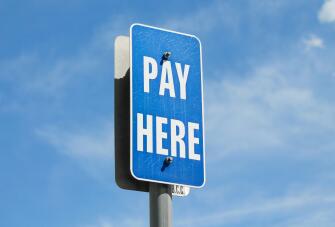Best Banks for Small Business
Choosing a bank for your small business isn’t exactly thrilling. But get it wrong, and you could be drowning in fees, slow transfers, and bad customer service. And that’s a problem because 82% of small businesses fail due to cash flow issues. The right bank can make or break your business.
So, what should you look for? The best corporate bank needs to be affordable, easy to use, and actually help your business grow. The best banks for startup business keep fees low and offer smart credit options so you’re not stuck scraping by. The best banks to do business with make managing your money simple, whether you’re making daily transactions or planning long-term. The best banks for entrepreneurs offer flexible banking, fast funding, and financial tools to help you scale, because growth takes money.
Big banks aren’t always better. Some small banks offer better service and lower fees. And splitting your money between accounts? That’s a power move for security.
With all this in mind it can be difficult to know how to choose a bank for small business. Let’s break it down.
What is business banking?
Business banking is essentially a company's financial dealings with an institution that provides business loans, credit, savings accounts, and good business checking accounts, with a bank that gives business loans, credit, savings, and checking accounts made just for businesses, not people like us.
According to McKinsey & Co, small-business banking represents around $150 billion in annual revenue for the US banking industry. That’s across a number of products like deposits, loans, cards, cash management, and merchant services and business account for about 17% of the US banking industry.
Now, beyond just being a place to store money, business banking can also offer tailored tools and services that are specifically designed for and tailored to small business owners. We’re talking about loans, payroll processing, and merchant services.
Types of business banking services
When it comes to business banking, there are so many different services available to meet the needs of businesses. Let's explore some of the different types available to you:
Business checking accounts
Business checking accounts (AKA business bank accounts/ business accounts) handle day-to-day transactions. This means you’ll need it for paying bills, receiving payments from customers, and managing your payroll.
Good business checking accounts often comes with features like online banking, mobile banking apps, and the ability to issue checks. Why is this beneficial, you ask? Well, it makes it much easier for business owners like yourself to track and monitor your expenses. With a business checking account, you can keep your business finances separate from your personal finances, which is crucial for accurate accounting and tax purposes.
Business saving accounts
Business savings accounts are like secure piggy banks, offering a safe and stable way to keep extra money and watch it grow over time. They typically earn interest, which means you can make money without doing much.
They're great for setting aside cash for emergencies, saving up for big business plans, or just making some extra money on the side. You can also take money out when you need it, but keep in mind there might be rules like how much you can take out at once or how much you need to keep in the account to keep earning interest.
Business certificates of deposit
Business certificates of deposit (CDs) are a safe bet for businesses wanting to make more money on their savings. When you get a CD, you put a certain amount of money in for a set time, like a few months or even years. In return, you get a guaranteed interest rate that won't change during that time. Usually, the longer you keep your money in the CD, the more interest you'll earn.
These are good for businesses that have extra money they won't need right away. CDs give you a steady and sure way to make money on your savings. Plus, they're insured by the FDIC, so they're a reliable choice if you want to grow your savings without taking risks.
Merchant services
Merchant services encompass a range of financial solutions that enable businesses to accept payments from customers. This includes credit card payment processing, online payment gateways, point-of-sale (POS) systems, and electronic invoicing.
Merchant services are essential for businesses operating in retail, e-commerce, hospitality, and other industries where customer payments are a regular part of operations. A merchant account streamlines the payment process, improves cash flow, reduces the risk of fraud, and enhances customer convenience by offering multiple payment options. Many merchant services also offer reporting tools and analytics to help businesses track sales trends and manage their finances more effectively.
Business credit cards
Business credit cards are invaluable tools for managing business expenses, making purchases, and building credit history for your business. These cards are separate from personal credit cards and are tailored to meet the unique needs of businesses.
They offer benefits such as rewards programs, cashback incentives, travel perks, and expense-tracking tools. Business credit cards also help establish a credit profile for your business, which can be crucial when seeking financing or applying for business loans in the future. By using a business credit card responsibly and making timely payments, businesses can improve their creditworthiness and access higher credit limits over time.
Business loans
Business loans provide essential funding for businesses to finance various needs, from startup costs and equipment purchases to expansion projects and working capital. There are several types of business loans available, including term loans, lines of credit, equipment financing, and small business administration (SBA) loans. Each type caters to different business requirements and comes with its own terms, interest rates, and repayment schedules.
Business loans can help businesses bridge financial gaps, seize growth opportunities, manage cash flow fluctuations, and invest in long-term success. It's essential for businesses to evaluate their financial needs carefully and choose the right type of business loan that aligns with their goals and repayment capabilities.
Epos Now Capital offers a new financing solution for small and medium-sized enterprises, providing funding of up to £1M to drive business growth, marketing investment, and cash flow management. With Epos Now Capital, you get no hidden fees and no fixed monthly payments—just instant access to business cash advances, repaid only when your customers pay you. The application process is quick, and funds can be with you as early as tomorrow, ensuring fast approval and flexibility in repayments that mirror your cash flow. Plus, applying to Epos Now Capital won't affect your credit score, making it a convenient and hassle-free financing option for businesses.
Best business banking based on services
Here's a breakdown of some top small business financing options based on their services and benefits provided by Forbes Advisor:
-
Best for startups and full-service online banking: NBKC Bank Business Checking Account
-
Best for earning interest and small businesses: EverBank Small Business Checking
-
Best for cash deposits and no monthly fees: U.S. Bank Silver Business Checking Account Package:
-
Best for app integrations and entrepreneurs: Novo Business Checking Account
-
Best for merchant services and branch access: Bank of America Business Advantage Fundamentals™ Banking
-
Best for payment processing and full-service banking: Chase Business Complete Banking℠
Methodology used to compare the best banks above
The methodology for this list was carried out by Forbes Advisor who analyzed 50 business checking accounts at 20 financial institutions.
Payment processing services made simple
Take integrated payments at one fixed rate, with no hidden fees - anywhere, any time.
How to choose a banking account for your small business
Choosing the right banking account for your small business is crucial for effective financial management. Here are key factors to consider:
Check your business credit score
Your business credit score is like a financial report card for your company. It's a number that shows how likely your business is to be approved for a loan or be seen as a reliable customer by banks and lenders. Similar to checking out reviews before trying a new restaurant, it's a wise move to check your credit score before settling on a bank. A strong credit score can unlock better banking options and loan terms, giving your business a boost.
Business credit scores typically range from 0 to 100. They're calculated based on factors like payment history, credit usage, and any public records like bankruptcy. According to Equifax, the scoring models generally rate credit scores from 580 to 669 as fair, 670 to 739 as good, 740 to 799 as very good, and 800 and above as excellent. Understanding your business credit score can help you make informed financial decisions and access favorable banking services.
Your business needs - cash flow review
Knowing how your business's cash flow behaves can guide your choice of business account. Is your income steady or does it go up and down? If it fluctuates, look for business bank accounts with low fees or overdraft protection to handle cash shortages. On the flip side, if your income stays stable, go for accounts with higher interest rates to make the most of extra funds.
Consider bringing in a retail or hospitality Point of Sale (POS) system. These tools track sales, inventory, and payments, giving you a clear picture of your cash flow. Retail POS systems are perfect for businesses selling products, while hospitality POS systems work wonders for food and beverage businesses. Using these systems can streamline your finances, cut costs, and make customers happier.
Other business needs - Future loans, corporate credit cards
Look ahead and think about where your business will be in a year or two. Do you foresee expansion plans that might require a loan? Perhaps you'll need a corporate credit card for business travel expenses or to manage day-to-day purchases more efficiently. Choosing a bank that offers these services upfront is important so that you're not caught lacking when these opportunities arise.
Having access to future loans can be instrumental in fueling your business's growth. Whether you're expanding your operations, investing in new equipment, or hiring additional staff, having a banking partner who understands your business's potential and is ready to provide financial support can make a significant difference.
Similarly, corporate credit cards offer convenience and flexibility in managing business expenses. They can streamline travel bookings, provide rewards or cashback benefits, and offer detailed expense reporting. Choosing a bank that offers corporate credit cards tailored to your business's needs ensures that you have the financial tools necessary to navigate day-to-day operations smoothly and seize opportunities for growth without delays or complications.
Corporate banking fees
Hidden fees can be a headache for any business. That's why it's crucial to seek out banks with clear and transparent fee structures, especially regarding monthly maintenance fees. Some banks offer fee waivers if you maintain a minimum balance in your account or utilize specific services like electronic transactions or online banking, helping you avoid an unnecessary monthly fee. Don't hesitate to discuss fee reductions or negotiate with your bank—it's your hard-earned money, and you deserve to have a banking experience that's fair and affordable.
When selecting a banking partner, prioritize banks with transparent fee structures and clear policies regarding monthly maintenance fees, overdraft charges, wire transfers, and ATM usage fees. Some banks may offer fee waivers based on maintaining a minimum account balance or utilizing specific banking services, providing cost-saving opportunities for your business. Negotiating fee reductions or discussing customized fee structures with your bank can also help minimize unnecessary expenses and optimize your banking experience.
Online banking
In today's digital world, online banking is a must-have for businesses. Statistics show that a significant majority of consumers, around 71%, prefer to manage their bank accounts through a mobile app or a computer.
Online banking offers convenience, accessibility, and efficiency when managing your business's finances. Ensure your chosen bank provides a user-friendly online platform and mobile app, allowing you to perform essential banking tasks such as checking account balances, paying bills, transferring funds, and depositing checks remotely.
Online banking also offers features like bill payment reminders, transaction history tracking, and account management tools, enabling you to stay organized and make informed financial decisions from anywhere at any time. Additionally, online banking platforms prioritize security measures such as encryption, multi-factor authentication, and fraud detection systems, safeguarding your business's financial data and transactions.
Physical credit unions
Credit unions offer a unique banking experience characterized by personalized service, community engagement, and competitive rates. As member-owned cooperatives, credit unions prioritize business advantage, relationship banking and financial well-being over profit maximization.
Consider exploring credit unions alongside traditional banks, as they often provide cost-effective solutions, lower fees, and favorable interest rates on savings accounts, loans, and credit cards. Credit unions often actively support local initiatives and contribute to economic development within their communities, offering a more socially responsible banking option for small businesses. Partnering with a credit union can foster long-term relationships, financial empowerment, and community engagement, aligning with your business's values and goals.
Type of business banking account
Lastly, consider the type of business banking account that suits your needs. Different accounts offer varying features and benefits, such as business checking accounts for day-to-day transactions, business savings accounts for accumulating funds, or business credit lines for flexible financing. Assess your business's financial activities and objectives to choose the most suitable account type that aligns with your goals and facilitates effective financial management.
Frequently asked questions about banks for small businesses
Should my startup have more than one business bank account?
Well, it really depends on what works best for your business. There are a few good reasons why you might want to think about having more than one business checking account:
-
Separating expenditures: Having separate accounts allows you to distinguish between day-to-day expenses and longer-term financial obligations like payroll and quarterly taxes. This separation can simplify financial tracking and budgeting. Imagine you run a small clothing boutique.
-
Tracking: Multiple accounts help in tracking operating income and expenses more efficiently. This tracking is especially useful for understanding cyclical patterns in your business's finances, aiding in better preparation for financial fluctuations.
-
Avoiding account limits: Operating with multiple accounts ensures that you don't exceed transaction and deposit limits imposed by individual accounts. This flexibility prevents disruptions in your banking activities.
-
Earning interest: Utilizing interest-bearing accounts for funds not required for immediate use can help your business earn passive income, optimizing your financial resources.
Final thoughts
Choosing the top business bank accounts is like picking the perfect teammate. You want someone who understands your goals, supports your growth, and makes your life easier. That's what our top bank picks are all about—being the reliable partner your business needs.
From no-fee checking accounts to easy financing and handy merchant services, these banks for businesses offer a range of tools tailored. They're not just about storing money; they're about helping your business thrive.
Running a business has its challenges, but having a solid banking partner can make a world of difference. Whether you're a startup looking for friendly services or a growing business in need of smart financial solutions, there's a bank on our list that fits the bill.
Remember, the best bank for your business is the one that aligns with your needs and makes banking a breeze. So take your time, explore your options, and find the perfect banking match for your entrepreneurial journey. Here's to smoother finances and greater success ahead!
Liked this blog? Check out our next blog post ‘Do I need a business account if self employed’, where we explore whether having a business bank account is absolutely essential if you're self-employed. Discover valuable insights and practical tips to help you make informed decisions about your financial setup. Don't miss out—click here to read now!
Our payment processing service seamlessly integrates into your retail or hospitality point of sale system. Contact our team for more info!




